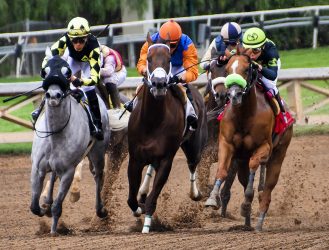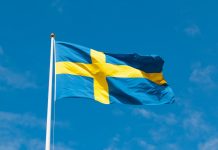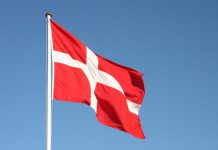 Sweden’s AB Trav och Galopp (ATG) posted the highest full-year revenue in the company’s history in 2019, though a decline in its core racing vertical and Sweden’s new gaming taxes hit operating profit for the year.
Sweden’s AB Trav och Galopp (ATG) posted the highest full-year revenue in the company’s history in 2019, though a decline in its core racing vertical and Sweden’s new gaming taxes hit operating profit for the year.Net gaming revenue grew 6.6% year-on-year to SEK4.44bn (£350.5m/€419.0m/$452.8m), of which horse racing accounted for SEK3.86bn, down 7.4%. This decline was offset by growth in ATG’s sports betting and casino offerings, which contributed a further SEK271m and SEK308m respectively.
Both launched following the re-regulation of the Swedish market from 1 January 2019, and revenue was bolstered further by the completion of the acquisition of Denmark-facing Bet25.dk operator Ecosys.
Its results were included from 1 April, and it contributed revenue of SEK89m to the full-year total, of which SEK70m was generated online, with the remaining SEK19m from retail.
Sweden, meanwhile, accounted for SEK4.35bn of revenue, with online accounting for SEK3.04bn, and a further SEK1.31bn generated via the retail channel.
The year’s net gaming revenue was complemented by a further SEK310m from ATG’s sales agent network – down 4.0% – and SEK561m in other revenue. This meant the full-year revenue total amounted to SEK5.31bn, up 2.8% year-on-year.
“[Despite] these record numbers, not everything was peaceful and joyful,” ATG chief executive Hasse Lord Skarplöth said. “Our plan to increase profitability in 2019 was adversely affected by the declining [horse racing] market, an effect of, among other things, increased gaming liability measures.
“A small consolation was that the overall market for horse racing did not decrease as much as the sports and casino verticals grew.”
As Skarplöth said, the biggest new item was Swedish gaming taxes of SEK872m, though other costs also soared 71.8% to SEK2.38bn.
This was down to an agreement with the Swedish equestrian sports industry to pay for information, rights and sponsorship, which accounted for SEK578m of that sum. The rest of the rise was attributed to costs associated with the new betting and casino products, and the expansion into Denmark via Ecosys.
Personnel costs also rose, to SEK452m, while amortisation and impairment charges for the year amounted to SEK195m, up marginally from the prior year. This resulted in ATG’s operating profit for 2019 declining sharply, falling 56.7% to SEK1.50bn.
After an SEK3m benefit from financial items, ATG’s full-year profit stood at SEK1.50bn, up 13.3% year-on-year.
Looking back at the year, Skarplöth described it as “exceptional” for ATG.
“It was the year when we faced our competitors on more equal terms,” he said. “For the first time on New Year’s Eve [2018], ATG offered our customers sports betting and online casino, and it was with great anticipation that we began work in the new gaming market.
“The tired ‘monopoly colossus’ (according to commentators) would go up against fleet-footed digital gaming companies and a historically successful Svenska Spel,” he said. “The contest would be too tough.
“It was – and is – tough. But in 2019, ATG was the largest gaming company and took market share.”












